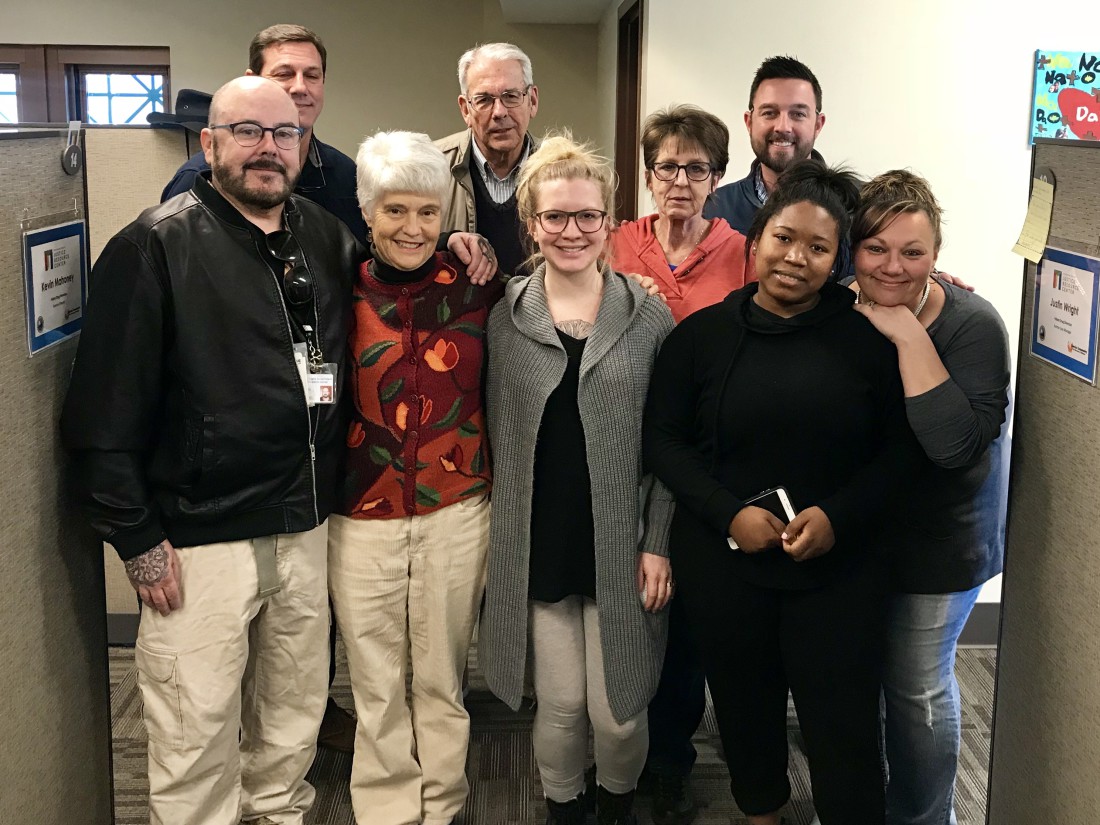Marked by a variety of characteristics, innovation can be found in multiple disciplines. But all innovators set out in front of the pack, bushwhacking a trail where none exists. Innovative organizations and projects bring outside-the-box thinking to problems or present a refreshing take on the status quo.
Xpress sought to find those clearing the path for our community’s future and put out a call for the public to nominate innovators. We received a total of 41 nominations and, through a process of several in-house jury deliberations, arrived at the eight we profile in this special issue. It wasn’t easy. And the runners-up made us deliberate if we should even feature more.
Xpress is proud to present Asheville’s Innovators. We hope their actions inspire you to innovate in your corner of Western North Carolina.
— Xpress Asheville Innovator jury: Edwin Arnaudin, Jeff Fobes, Dan Hesse, Max Hunt, Carolyn Morrisroe, Tracy Rose and Gina Smith
Sunrise Community for Recovery and Wellness
Website: SunriseInAsheville.org
Kevin Mahoney, executive director
Describe your organization/project.
We are WNC’s first peer-managed/staffed recovery community organization bringing lived experience with mental health and substance use disorder to the community to assist others in their journey to wellness and self-empowerment. Peer support is a certified North Carolina state employment position for persons previously challenged and overcoming mental health and substance use challenges. A recovery community center is an “umbrella” for persons who face health, economic and emotional situations and need real-time, real-life solutions.
Why is this needed in the Asheville area, and how does it make a difference?
All persons, no matter what city or town they are in, need more connection to community and deeper networking between organizations committed to community wellness. Our society faces a dichotomy wherein we have sophisticated community and social media venues but as individuals, we can feel isolated and alone. We hope to help persons in emotional distress from mental health issues, substance abuse, homelessness and hopelessness by walking alongside them and not coercing or “fixing” them.
What was your epiphany/eureka moment for this organization/project?
As in the movie “Field of Dreams,” we built a recovery infrastructure that others saw value to partner with and invest in. From my employment experience at Vaya Health, our local managed healthcare organization, I saw areas or “gaps” in service that I thought peer support services could fill in the medical, mental health and court systems.
What was the inspiration that made you take the leap from cool, cutting-edge idea to implementing it?
We took inspirations from the “elders,” that is, retired CEO and CFOs, a psychiatric nurse practitioner and vets in our recovery community, one of whom, Blair H. Clark, recently passed away from the disease ALS this month. The Sunrise board of directors is composed of 70 percent persons in recovery and other “recovery advocates.”
What do you think makes it innovative?
Peer support is a newer modality in mental health/substance-use communities. We are deploying peers in the medical, forensic and court system and Department of Social Services/family continuum of care. We embrace a “multiple pathways to recovery” model, utilizing principles from Dr. Gabor Mate, Dr. Carl Hart, SMART Recovery, Refuge Recovery, Alcoholics Anonymous and Narcotics Anonymous, medication-assisted treatment, the federal Substance Abuse and Mental Health Services Administration’s social dimensions of wellness and peer-operated respite services.
How is it working now?
We are strategically situated on a variety of educational and opioid response committees and tactically deployed in the new Family Justice Center for felony drug diversion, in the Buncombe County Detention Facility for group and Moral Reconation [a recovery coaching technique] work and in a recovery community center on North Louisiana Avenue, which is a peer-operated respite house.
What are your goals for the project in the future?
We want to get the peer-operated respite service up and running by December. It’s the first of its kind in North Carolina and it represents a very exciting opportunity to interact without a “power differential” or uneven social status relationship to folks in our community and also neighboring communities. Building community is what it’s all about. Our mantra is “relationship is magic.”
How is what you’re doing different from what others (people, organizations) are doing to solve this problem?
We are addressing mental health and substance use at grassroots, person-to-person, nonclinical, nonpower-differentiated levels.
What advice do you have for people trying to use innovation to foster change in the community?
Never give up, all is possible. The opposite of addiction is community.





Before you comment
The comments section is here to provide a platform for civil dialogue on the issues we face together as a local community. Xpress is committed to offering this platform for all voices, but when the tone of the discussion gets nasty or strays off topic, we believe many people choose not to participate. Xpress editors are determined to moderate comments to ensure a constructive interchange is maintained. All comments judged not to be in keeping with the spirit of civil discourse will be removed and repeat violators will be banned. See here for our terms of service. Thank you for being part of this effort to promote respectful discussion.